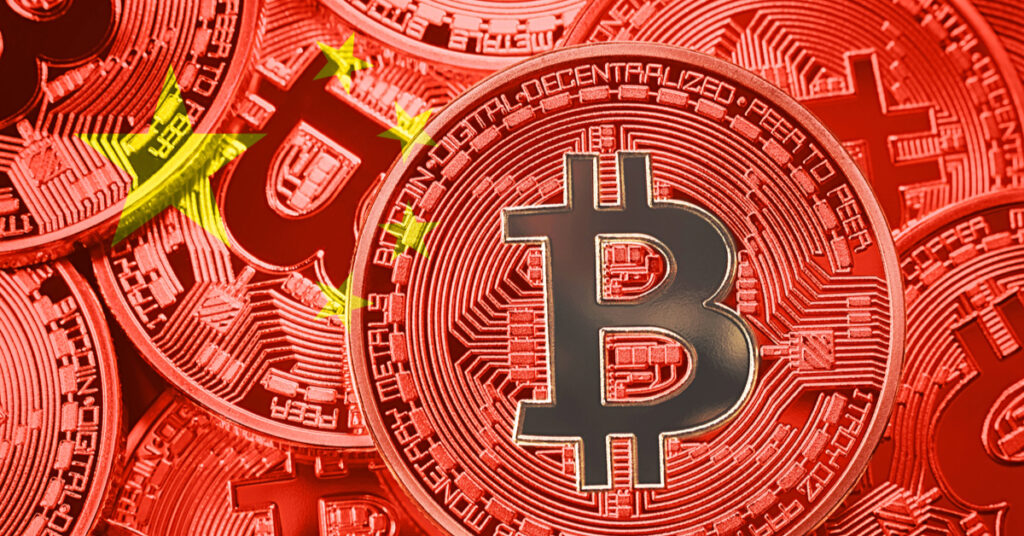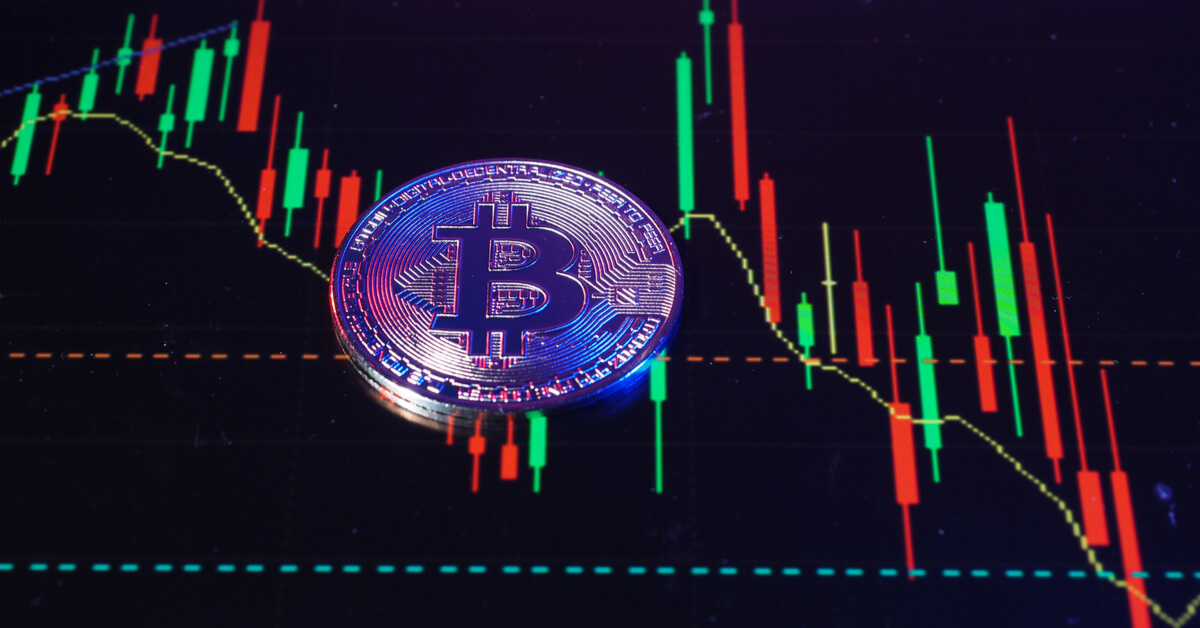
China Restrictions Result in a Week of Crypto FUD but Could Deliver Win for Decentralization
New Chinese regulations resulted in fear, uncertainty and doubt (FUD) flooding the cryptocurrency markets last week. The onslaught of news offered little respite for cryptocurrencies to regain ground. For those that have been waiting for a significant correction in prices, last week may be a blessing in disguise and for those who are here for the long haul, the new regulations could have a major silver lining.
- Musk clarifies that no Bitcoin has been sold by Tesla
- China bans cryptocurrency services
- Ethereum’s founder, Vitalik Buterin comments on volatility
- Bitcoin Pizza Day commemorated
- Technology stocks are dropped for inflation-protected assets
- Big-ticket reports to watch out for this week
Bitcoin reels from another round of negative news
After beginning to show signs of recovery, it turned into another tough week for many cryptocurrency holders as Bitcoin reeled from a second round of negative news.
During the week prior, Bitcoin prices had been negatively impacted by an announcement made by Elon Musk, the CEO of Tesla. Although believing cryptocurrencies to be a brilliant technological advancement, the entrepreneur believed Bitcoin mining had become too unsustainable. As a result, Tesla paused the acceptance of Bitcoin as a form of payment. Though no longer accepting Bitcoin as payment, the company stated it was still keeping its $1.5 billion Bitcoin purchase on the balance sheet.
With debate raging on each side, a further comment made by Musk last Sunday on Twitter incited panic that the company had sold all of its Bitcoin holdings. Musk had to repeat himself on Monday and publicly stating this was not true. In a tweet he declared, “to clarify speculation, Tesla has not sold any Bitcoin”. The efforts from the CEO were a little too late as the damage had been done and prices continued to fall amid further news through the remainder of the week.
China bans crypto services
On Tuesday, three industry bodies in China released a statement that financial institutions and payment companies were banned from providing any services related to cryptocurrencies. This included registration, trading, clearing and settlements. An interesting move from a country that accounts for the largest share of Bitcoin miners.
The ban purportedly stems from concern over consumers trading the cryptocurrency markets. In a statement released with the news, the Chinese authorities said “Recently, cryptocurrency prices have skyrocketed and plummeted, and speculative trading of cryptocurrency has rebounded, seriously infringing on the safety of people’s property and disrupting the normal economic and financial order”. Consumers are still able to hold cryptocurrencies if they wish.
Following the news, all cryptocurrencies fell almost instantaneously, with Bitcoin reaching a weekly low of $30,000. Although rebounding, the bearish news continues to weigh heavy.
The restrictions from China have come a few weeks after Beijing announced a review of Bitcoin mining activities at the start of May.
This is not the first time that China has taken such a stance against cryptocurrencies. In 2017, China enforced a stringent ban, closing cryptocurrency exchanges and preventing initial coin offerings (ICOs). Even though enforcing the ban and hurting investors momentarily, the ban in 2017 ultimately had no bearing on how successful Bitcoin has become.
Urul Lykke, executive director at the crypto hedge fund ARK36, claimed this is nothing Bitcoin and the cryptocurrency markets haven’t seen before. “The crypto markets are currently processing a cascade of news that fuel a bear case for price development. More than $250 billion evaporated from the Bitcoin market alone last week. Though that number seems astronomical, such moves aren’t uncommon in the volatile crypto market. In terms of Bitcoin’s outlook, things may be looking grim right now, but historically this is just yet another hurdle for Bitcoin to overcome and a small one compared to what it has braved in the past”.
China mining clampdown – a win for decentralization?
On Friday the news of the incoming regulations in China was followed by warnings of a clampdown on Bitcoin miners operating in the country. Although temporarily weakening Bitcoin’s price, the new restrictions may actually be positive for Bitcoin in the long-term. An estimated 70% of mining takes place in China, which is an overwhelming percentage that raises the question of whether Bitcoin mining is too centralized. A crackdown in the country could lead to a more decentralised Bitcoin mining network and allow miners in other countries with greener energy sources space to participate.
In a separate but related move to China’s announcement, Hong Kong financial regulators stated on Friday that trading on cryptocurrency exchanges would be restricted to professional investors. Only investors with a portfolio over $1.3 million will be licensed to trade.
FUD halts altcoin progress. Ethereum’s founder comments
The fear, doubt and uncertainty this week was not limited to Bitcoin and has cascaded throughout the altcoin market. The new restrictions imposed in China and the removal of retail traders in Hong Kong pushed the daily trading volume to new heights as traders exited and leveraged positions were closed. Although Bitcoin dominance has diminished in recent weeks the correlation between Bitcoin and alts is still clear to see.
Vitalik Buterin, Ethereum’s founder, weighed in on the price retreats by saying it is extremely hard to predict the top. Vitalik is known to have accurately predicted dips in crypto valuations during the bullish run in 2017. However, this week he added, “It feels like crypto is close to mainstream in a way that it wasn’t even four years ago. Crypto isn’t just a toy anymore”.
Speaking about regulation the Ethereum founder warned that regulation was always a concern. “Governments do have a lot of power to make it more painful in the crypto sector. Even though blockchain is decentralised and governments can’t completely take them down, they can block or limit access. It is important to listen to regulators to try to do our best to address concerns”.
Due to the rush for the exit door, there was increased congestion on the Ethereum blockchain last week, which subsequently resulted in a spike in Ethereum transaction fees (gas fees). Commenting on these issues Buterin said that he was extremely excited by the changes coming to Ethereum blockchain over the next year. The blockchain will be moving from a Proof of Work to a Proof of Stake system which should greatly improve processing times, whilst lowering energy consumption.
Bitcoin Pizza Day Commemorated
On the 22nd May 2010, computer programmer Laszlo Hanyecz used Bitcoin to purchase two pizzas from Papa Johns. At the time 10,000 BTC were exchanged for the two pizzas which for Laszlo was a reasonable price given the technology was only a year old. It marked the first-ever commercial transaction for the cryptocurrency and is a moment that is often referred to in Bitcoins timeline. Last Saturday marked the 11 year anniversary of that transaction.
To commemorate the special day Slice and PizzaDAO have joined forces to offer 1 Bitcoin worth of pizza to customers all across the US, through what they are calling the Rare Pizza Project. The project has been funded by community donations and sales of non-fungible tokens (NFTs) and has called upon digital artists, software developers and fellow pizza connoisseurs to help them achieve the feat.
Slice has provided the infrastructure through its network of independent pizzerias, whilst PizzaDAO, which is a collection of pizza and cryptocurrency fans, have created and sold the NFTs necessary to drive donations.
Along with celebrating Bitcoin Pizza Day, the initiative’s main hope is to support independent pizzerias up and down the country that have been affected by COVID-19.
Tech stocks drop on inflation protection
Often the price volatility in the cryptocurrency markets is echoed in tech stocks however tech stocks were falling for a different reason this week. Analysts believe that investors were beginning to move funds out of technology stocks that have exceeded price expectations during the COVID-19 pandemic. Investors are now looking towards inflation-protected assets.
According to Bank of America (BofA), $1.1 billion exited tech-related stocks this week, which is the biggest exit since December 2018. At the same time, $1.3 billion entered Gold-related funds.
The increased risk of inflation means there is a growing concern over the use of higher interest rates to combat. Higher interest rates are often viewed negatively for technology stocks due to their high correlation with the value of future earnings. Future earnings are discounted when interest rates increase.
Big-ticket reports to watch out for this week:
Monday – New Zealand Retail Sales, Bank of Japans Governors Speech
Tuesday – US New Home Sales
Wednesday – New Zeland Monetary Policy Statement, Reserve Bank of New Zealand Interest Rate Decision
Thursday – US Initial Jobless Claims, US GDP Annualized, US Durable Goods Orders, US Treasury Secretary Speech
Friday – US Goods Trade Balance, US Michigan Consumer Sentiment Index
To stay up to date on all things crypto, like Xcoins on Facebook, follow us on Twitter and LinkedIn and sign up at the bottom of the page to subscribe.


